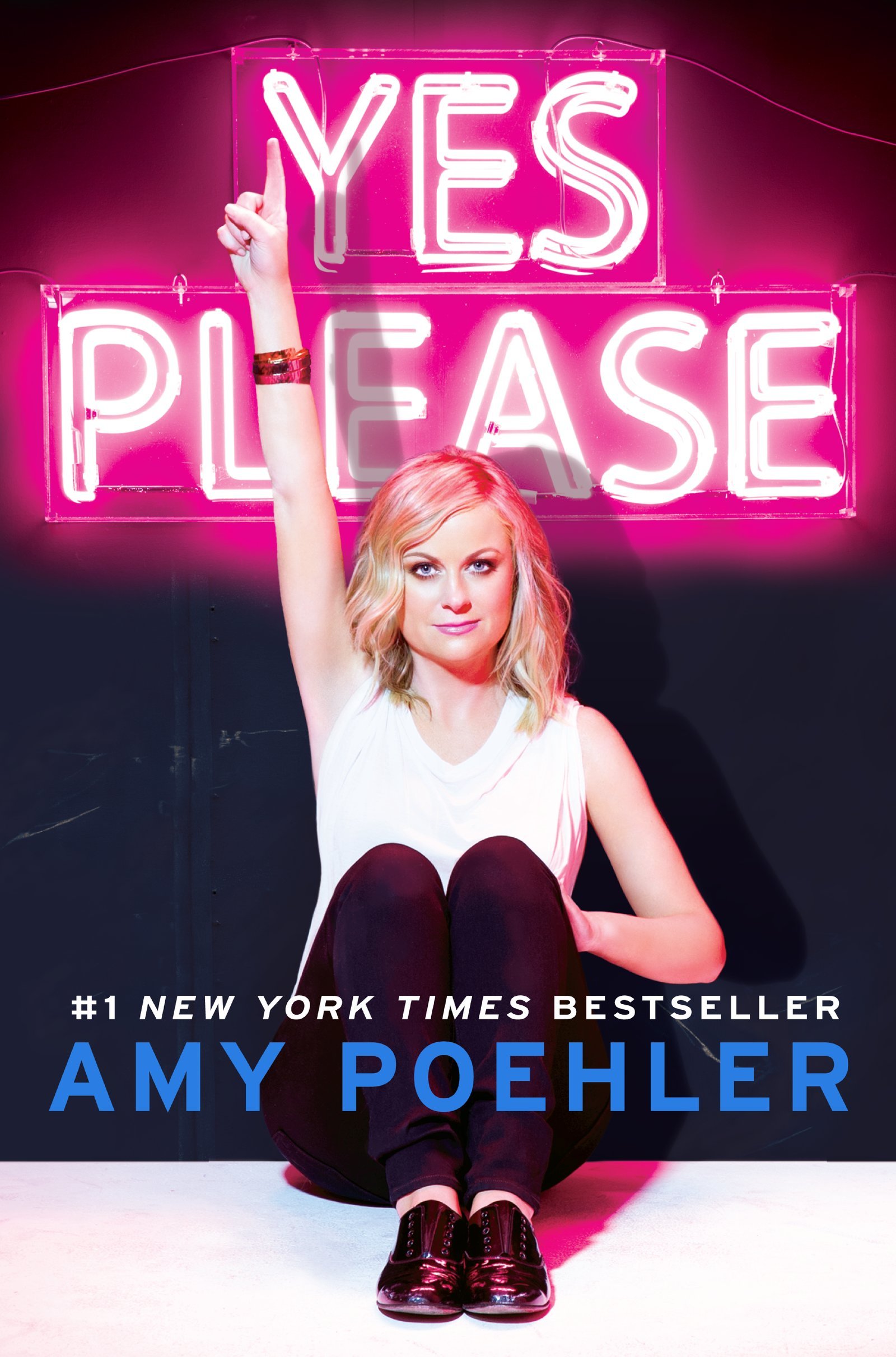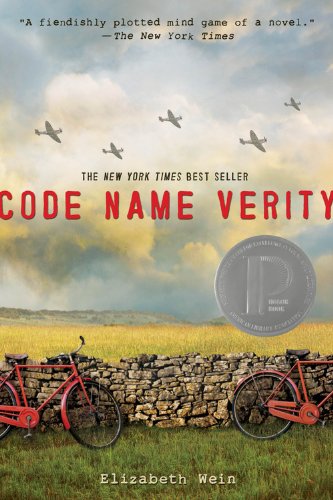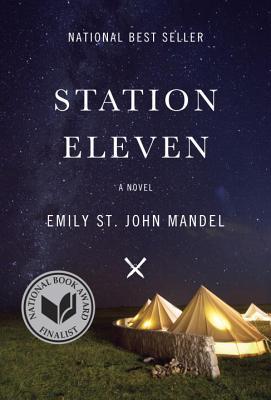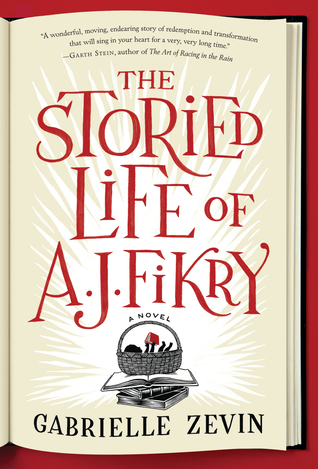I didn't get to read for fun for months, thanks to college, as I had to read hundreds of pages each week and just didn't have any time left to relax with a book I wanted to read for fun. When I got home in May, I added to the already large pile of to-be-read books in my room by getting more than a dozen from the library and buying another dozen at the used bookstore. (I have a problem.) People usually write about books to read over the summer, but instead I now have recommendations based on what I read this summer. Fall reads? End-of-summer reads? Reads for anytime? Whatever. Recommendations and thoughts on the books below!

1.
All the Light We Cannot See
by Anthony Doerr
“Don’t you want to be alive before you die?”
All the Light We Cannot See
was one of the books I was most excited to read this summer. Doerr's book won the Pulitzer for fiction this year, and I had heard only glowing reviews of the book; I wholeheartedly agree. This book is beautiful. The two central stories, of a German boy and a French girl around World War II, build until they start to come together in a way that I won't forget for a long time. It is so many things: a war story, a coming-of-age novel, a narrative about morality and harsh realities.
It was a surprisingly quick read for me, despite being more than 500 pages, with a beautiful and elegant style that doesn't make the often heavy material dense. Doerr does things with words that are simply stunning, constructing a narrative and descriptions that are fully realized. The setting hauntingly transforms from idyllic to war-torn and lonely. The world of this book is sad, grieving, and hurting, but it is also full of hope, thoughtfulness, and human goodness.
As Doerr explained that the deeper meaning of the title is "a suggestion that we spend too much time focused on only a small slice of the spectrum of possibility," this book illuminates a unique story. I highly recommend it; overall, it is haunting and bittersweet story about human connection and ordinary people whose lives are inexplicably linked.
More after the jump!

2.
The Secret History
by Donna Tartt
“Beauty is terror. Whatever we call beautiful, we quiver before it.”
Last summer I read Donna Tartt's third book,
The Goldfinch,
the Pultizer-winning, lengthy tome of a bildungsroman novel. I
loved
it
,
and I
recommend it as well as this one. I was so eager to read
The Secret History,
her debut novel about a group of students and the crime they commit, that I bought it in the fall while at school, but I didn't have time to sit down and read it until I got home for the summer.
From the first page, the book subverts traditional mystery and thriller style and tells you what is going to happen: the group murders one of its members. Then the narrator backs up and explains how they got to that point in a narrative rife with suspense and trepidation, but the murder doesn't take place at the end of the novel. Instead, a good portion of the book occurs after the murder, examining the tension and fragility of the group and its members now that they committed this crime.
The characters aren't exactly likable on paper. They're snobbish, arrogant, and pretentious, remaining aloof from the rest of their school and basically the rest of the world in favor of being intellectuals obsessed with classics. But thanks to Donna Tartt's skill, she makes you enthralled with them, and almost like them. (As
would point out, they become your problematic favorites.) They are so skillfully drawn, as is their group dynamic, which I am still fascinated by, three months later.
I want to write like Donna Tartt. Her writing is stunning and powerful, and there are times when reading her books when you reach the end of a sentence or paragraph and let out a breath and just think, "Wow." In those moments, I often think about how I want to write like she does. Every word she uses is used deliberately, and you get the sense that this is a very carefully controlled narrative.
This got very long and I could write an essay on this book, so my point is: read this book. Love it. Come talk to me about it.

3.
American Gods
by Neil Gaiman
“People believe, thought Shadow. It's what people do. They believe, and then they do not take responsibility for their beliefs; they conjure things, and do not trust the conjuration. People populate the darkness; with ghosts, with gods, with electrons, with tales. People imagine, and people believe; and it is that rock solid belief, that makes things happen.”
I want to read everything by Neil Gaiman, a realization that occurred to me when I wasn't too far into
American Gods.
I'm planning on working my way through his other novels and short story collections, but for now I'm fascinated by this Gaiman classic.
American Gods
is hard to describe, but essentially it is about ex-con Shadow, who is hired by the mysterious Mr. Wednesday, and follows the story of the "old gods," who face their increasing irrelevance and dwindling power in the new world of America. It is a story about those things that populate the darkness, invented by humans.
This unforgettable book has a great sense of mystery and magic woven into everything written. Gaiman uses setting incredibly well, as he creates a landscape rich with elements of Americana. It is a dark and strange work, rife with questions and suspense. But it is also entertaining, in a sort of subdued, witty way, not to mention the fantastic storytelling. I was floored by his use of mythology; he carefully weaves together mythological characters from many, many backgrounds, not drawing only from Greek gods. Don't get me wrong, I love Greek mythology and modern adaptations or usages of it, but people tend to focus on the Greeks when there are so many other mythological, fantastical stories and cultures to draw from.
This is not a fast-paced, action-packed book. It is a complex story that unfolds slowly. It takes time. It takes dedication. But it is so worth it.

4.
The Song of Achilles
by Madeline Miller
“We were like gods at the dawning of the world, and our joy was so bright we could see nothing else but the other.”
I actually started reading
The Song of Achilles
last summer, but didn't get the chance to finish it. I was somewhat familiar with the story of Achilles, Patroclus, and the Trojan War before I started reading, but I had never read the original source of the story,
The Iliad.
After reading
The Iliad
for a class and discussing the analysis of the story, including the nature of Achilles and Patroclus' relationship, in class, I returned to
The Song of Achilles
this summer.
Miller has taken an ancient story typically read in college classes, selected an element from it, and focused on that; in the process, she turns the story of Achilles and Patroclus into a fresh, modern take. Her novel is an exploration of their relationship before and during the Trojan War; the rest of the dense, extensive
Iliad
takes a backseat here, instead forming the background of the book. Miller's depiction of Achilles highlights the classic characteristics - stubborn, reckless, proud, temperamental - but makes more room for his devotion, passion, and even a surprising tenderness. He is a much more human figure, who is also keenly aware of his fate but doesn't understand how it will come to pass. Along with using his perspective very well, Patroclus becomes a fully realized character when in Miller's hands, just as their relationship becomes clear and compelling. The writing in this book is stunning; it is cleverly modern and classic at the same time, as well as simply beautiful. Additionally, it is an emotional book without being melodramatic, striking a good balance.
The Song of Achilles
is a wonderfully written, haunting story of the humanity in the Trojan War - specifically, the humanity of one of the greatest Greek heroes - and a tale from
The Iliad
of life and love. It is also a great, accessible version or piece of the Greek epic, which is good for both those who can't get through
The Iliad
and those who enjoy it. Honestly, I'm still not over this book, and it is one of the best things I've read this year.

5.
Yes Please
by Amy Poehler
“It takes years as a woman to unlearn what you have been taught to be sorry for. It takes years to find your voice and seize your real estate.”
I
love
Amy Poehler. I've loved her since watching her on
Saturday Night Live
during the 2008 election when she and Tina Fey killed it as Hillary Clinton and Sarah Palin, which introduced my 13-year-old self to political humor and satire at the time I was getting interested in politics. I'm obsessed with
Parks and Recreation
and her wonderful creation, Leslie Knope. Amy Poehler is part of the group of my favorite funny ladies (such as Mindy Kaling and Tina Fey) who are such #lifegoals for me, not as an aspiring funny lady (I am 100% not funny) but as a woman who wants to work in media and emulate their spirit of creativity, unabashed enthusiasm, dedication, and determination. Of course, I was dying to read her book,
Yes Please
, when it came out.
I actually read this book in one sitting on New Year's, which was a nice and inspiring way to start out the year. I finished it and immediately wanted to reread it. This book is as funny, entertaining, witty, and cheerful as you would expect. I like some memoirs and books of essays by celebrities - Tina Fey and Mindy Kaling's books are wonderful, and I recently read Neil Patrick Harris's memoir - because I am not above admitting that I enjoy reading about behind the scenes stories, the entertainment industry, and everyone-in-show-business-is-friends anecdotes. Maybe it's because I want to work in the media industry, maybe it's because I am a pop culture junkie. But I think what elevates the books of my favorite funny ladies (Poehler, Fey, and Kaling) isn't just their wit, but their thoughtful looks at life, both in entertainment and in personal life.
Yes Please
looks at what it's like to work in television and comedy, be a writer, grow up, and live life, particularly as a woman, discussing everything from the importance of a strong sketch and confidence to a good partner and good female friends. I could write a lot more here, so I'll just say: read this book.

6.
Code Name Verity
by Elizabeth Wein
“It's like being in love, discovering your best friend.”
Okay, so I didn't read this one this summer; I read it two summers ago, loved it, and have been recommending it to everyone since then. My mom just read it this summer, so I'm using that as an excuse to talk about it here. I was blown away by this book; I still feel stunned from it, and it's been two years. I'm still emotional about it, and I haven't been able to prepare myself for a reread of it yet. This is a powerful, affecting book that won't leave you.
Code Name Verity
is about two young women working for the British military during WWII, and their friendship is central to the story. At the beginning of the story, one of them has been captured, and is writing her confession. I
love
this book for numerous reasons. It seems very well researched, so the historical element of the book really holds up. It is also very carefully constructed and plotted narrative, one that manages to surprise the reader. It will make you gasp multiple times, as things start to come together and the story comes to an end.
It doesn't fit the stereotype for YA; it is a YA book without romance, instead focusing on a female friendship. These young women, and their friendship, are beautifully drawn and unique. I mean, a female agent and pilot in WWII, who don't sacrifice femininity and their real selves to join the war effort, who are brave and complicated and very real? Sign me up. Plus, it is charming and funny and heartbreaking and clever, all in one book and well-balanced. It is a very personal, compelling novel that makes you feel the desperation and the will to live of these women. Basically, it's
so good.

7.
Station Eleven
by Emily St. John Mandel
“The beauty of this world where almost everyone was gone. If hell is other people, what is a world with almost no people in it?”
Station Eleven
is such a gem of a book. I had never heard of it until I came across it on Goodreads, but oh, is it good. I need someone to read it so they can talk about it with me. I don't always like post-apocalypse novels that take place after civilization has crumbled. Criticisms of the genre aside, I got sick of all of the dystopian and utopian stories that dominated YA, movies, and TV for a few years.
Station Eleven
, however, stands out as a very unique, smart depiction of what happens after the collapse of civilization as we know it, triggered in this case by an extreme flu epidemic.
This poignant book of interconnected stories goes back and forth between characters and between the time before and after the epidemic.
Station Eleven
asks what happens after the society falls apart, and in this world, rather than dramatic new regimes and wars, the survivors have come to a point where they have accepted this as the reality, and so they begin anew. They build new lives with new families in new homes in new towns. People hold on to the not-yet-forgotten past, but they try to move forward. However, one group of characters remember a line from
Star Trek
, a relic of the past: "survival is insufficient." They bring much-needed art from the past culture back into the world. Ultimately, that is what this book emphasizes. The world after the epidemic highlights human resilience and survival, but it is not enough.

8.
The Storied Life of A.J. Fikry
by Gabrielle Zevin
“We are not quite novels. We are not quite short stories. In the end, we are collected works.”
At the recommendation of my mom and my aunt, I finally picked this up a few days ago, and I didn't put it down - I literally read it in one sitting. I hadn't read a book by Gabrielle Zevin in years, but I'm glad I chose to read this one.
The Storied Life of A.J. Fikry
is about the lonely owner of a failing bookstore in a small island town. A.J. Fikry is irascible and opinionated about pretty much everything, but especially about books. He receives an unexpected gift than transforms his life.
This is a quick read, just 270 pages that fly by, but it packs a lot of emotion and plot into its pages. It is a sweet, relatively light, and entertaining story that frequently made me smile and even laugh out loud.
The Storied Life
has an interesting cast of characters to fill out life on Alice Island, and I was pleasantly surprised as I read more about them. In general, this book was a pleasant surprise; I didn't know anything about it beforehand, and it wasn't what I had expected. I thoroughly enjoyed it, partially for its focus on books and those who read them. It is perfect for a bibliophile; there are countless references to books, as well as recommendations made by Fikry within the narrative and as written to someone in his life. This is a book about people who love books, who fall in love with books, and who know the power of books. On a grander scale, Zevin's novel is about second chances at love, life, and happiness. And, of course, books.
Go forth and read! I'm currently reading
Neverwhere
by Neil Gaiman. I'm always looking for new books and adding to my very long list of to-read books on Goodreads, so let me know if you have any recommendations! Also, let me know if you read any of these and your thoughts.
|
|